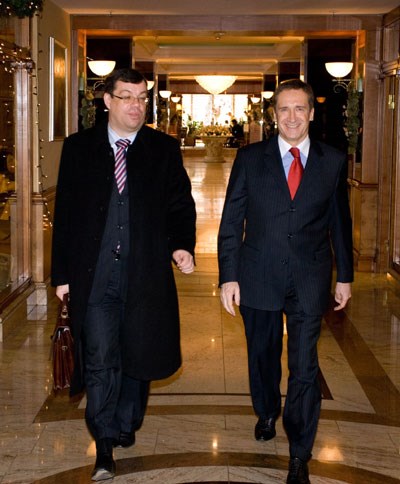- Published: 26.12.2008.
2008 successful for Croatian tourism, 2009 likely to be full of challenges
In 2008, Croatia"s tourist industry saw a steady growth in tourist traffic and a rise of one to three percent in its financial effects in comparison to 2007, while the world began coping with the global crisis which has already led to a reduction of demand on the global tourism market.
According to estimates of Croatia"s Tourism Ministry, which was re-established with the inauguration of the government led by Prime Minister Ivo Sanader at the start of this year, 2008 has been so far the most lucrative year for Croatia"s tourism.
Excellent results and improved quality of the offer and accommodation have been attributed to direct investments in this industry which totalled some HRK 7 billion this year. The largest part of that sum, that is HRK 5.5 billion, was invested in the private hotel sector.
In 2008, Croatia's tourist industry saw a steady growth in tourist traffic and a rise of one to three percent in its financial effects in comparison to 2007, while the world began coping with the global crisis which has already led to a reduction of demand on the global tourism market.
According to estimates of Croatia's Tourism Ministry, which was re-established with the inauguration of the government led by Prime Minister Ivo Sanader at the start of this year, 2008 has been so far the most lucrative year for Croatia's tourism.
Excellent results and improved quality of the offer and accommodation have been attributed to direct investments in this industry which totalled some HRK 7 billion this year. The largest part of that sum, that is HRK 5.5 billion, was invested in the private hotel sector.
The industry also started a new investment cycle of HRK 2 billion which will last until 2010, despite the ongoing financial crisis.
Although the ministry has described 2008 as the most successful year for the national tourist trade, some problems seem to be more conspicuous than before. This refers to weak profitability and low liquidity of hotel companies, a halted privatisation process, which is detrimental to the offer and investments, as well as to outdated and incomplete relevant legislation.
Entrepreneurs in the industry, notably big hotel managers, have, therefore, called for a series of financial and legislative measures to be taken in a bid to overcome the above-mentioned problems.
They insist on the reduction of the Value Added Tax from the current 10 percent rate to six or at least to eight percent, which they believe will help the Croatian tourist trade to offer more competitive prices.
Some other problems include a too short summer season which should be lengthened, low-spending tourists, price inadequacy, a lack of upper-category hotels while having low-quality private accommodation in abundance, poor entertainment and leisure amenities in resorts etc.
At the end of this year, draft amendments to some existing tourist laws were sent into parliamentary procedure, and the parliament also adopted a Golf Act, regulating the construction of golf courses in Croatia.
The Tourism Ministry and other factors in the tourist trade have cooperated in the elaboration of strategic documents and plans for the industry, including an in-depth analysis, a strategic development document and tourist satellite accounts, which are likely to be completed in 2009.
The next year is likely to be full of challenges for the tourist sector, which is why growth expectations have been trimmed. To have the same results in 2009 as in a 2008 will be a success. (Hina)
